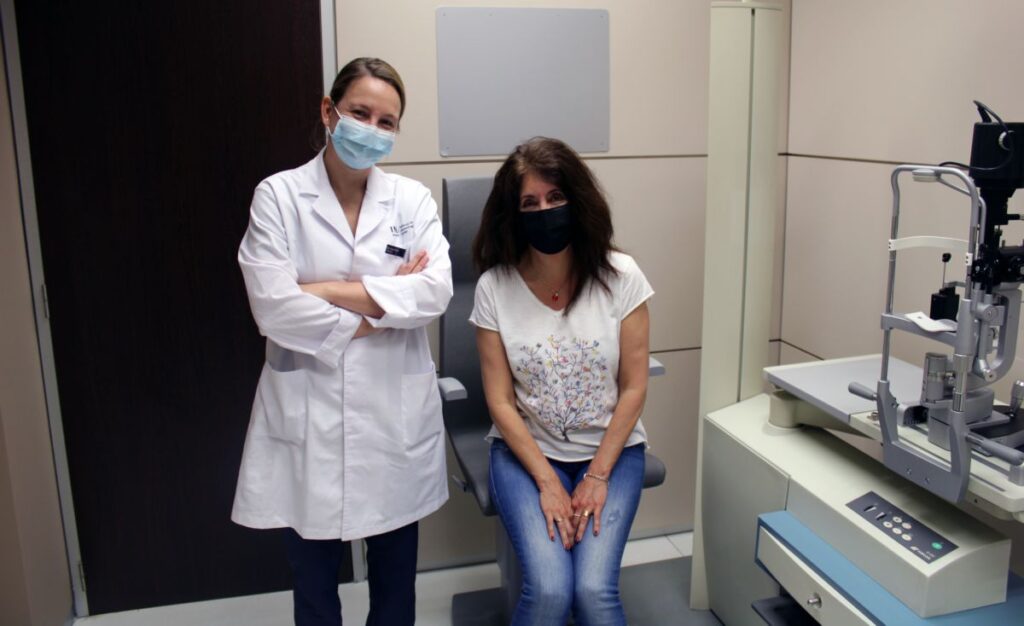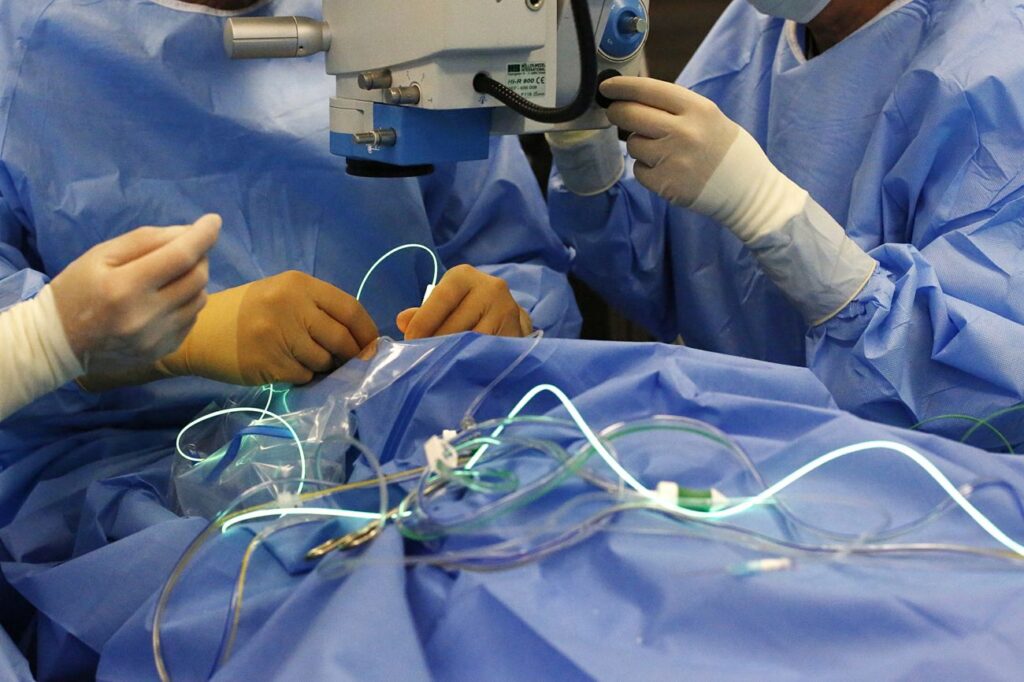
Retinal detachment does not always warn you: a surgery case study
When Esther started to see a little blurry, she did not think much of it at first, as she had no pain or other discomfort. However, one day the loss of sharpness became more intense, and she noticed a dark curtain falling over her eyes. She decided to see an ophthalmologist and discovered that she was suffering from retinal detachment.
As Dr Andrea Oleñik, a specialist at IMO Grupo Miranza Madrid, explains “it was an inferior detachment, which usually has a poor prognosis, because patients only notice it when it has already affected the macula or centre of the retina, the most important area for vision. This was the case with Esther, who had had a detached retina for a long time, although she was unaware of it, and had a significant degree of inflammation inside the eye, a complication known as vitreoretinal proliferation.
Putting yourself in trustworthy hands
What were her chances of recovering her vision? As Dr Oleñik explains, “the retina is made up of nerve tissue and is like a TV cable. “If you cut it in half and reconnect it, it may happen that the TV works again, that it has lost part of its functions or that it recovers them but with a lower quality.”
Therefore, there is no single possible outcome for retinal detachment surgery and many factors are involved, from the degree of evolution and severity of the disease to the characteristics of each eye and patient or the surgeon’s experience, whose choice and performance of the surgical technique can be crucial. Thus, Esther decided to ask for Dr Oleñik’s help, after having received the family recommendation to go to the IMO and finding out that the Institute now had a clinic in Madrid.
“I came to her consulting room thinking that I could lose my eye, because at the emergency centre I had initially visited, they told me that, if I was lucky, I would recover 20% of my vision with the surgery, which would be performed in 4-5 days. Dr Oleñik, on the other hand, took the bull by the horns, conveying a lot of assurance and confidence, and the next day I was already having my retinal detachment surgery.”

24-hour retinal detachment surgery
“At IMO Grupo Miranza, we usually try to perform retinal detachment surgery in less than 24 hours, providing all the means available to our patients to ensure fast, high-quality surgery”, says the ophthalmologist. In Esther’s case, she adds that “despite being a complex case, we did not have to use silicone oil inside the eye to get the retina to recover its usual position with the vitrectomy. Instead, we used gas, which facilitates a faster recovery and does not require a new surgery to remove it.”
Esther could not have been more satisfied with the postoperative period, which far exceeded her visual expectations. At her follow-up visit a month and a half after the retina surgery, she was already seeing 70%, with prospects for further improvement, “as the retina, being nerve tissue, usually needs about a year to be fully restored”, concludes Dr Oleñik.
Annual check-ups of the eye fundus
To avoid advanced cases such as Esther’s, who had not previously had any eye problems or warning signs, the IMO Grupo Miranza ophthalmologist reminds us of the importance of having regular check-ups, especially after the age of 40, in the event of having suffered an eye trauma or having risk factors, such as high myopia or diabetes. These check-ups should include a complete examination of the fundus of the eye to detect possible tears in the retina that could lead to a detachment and which, if caught in time, can be treated preventively with laser to avoid retinal detachment surgery.